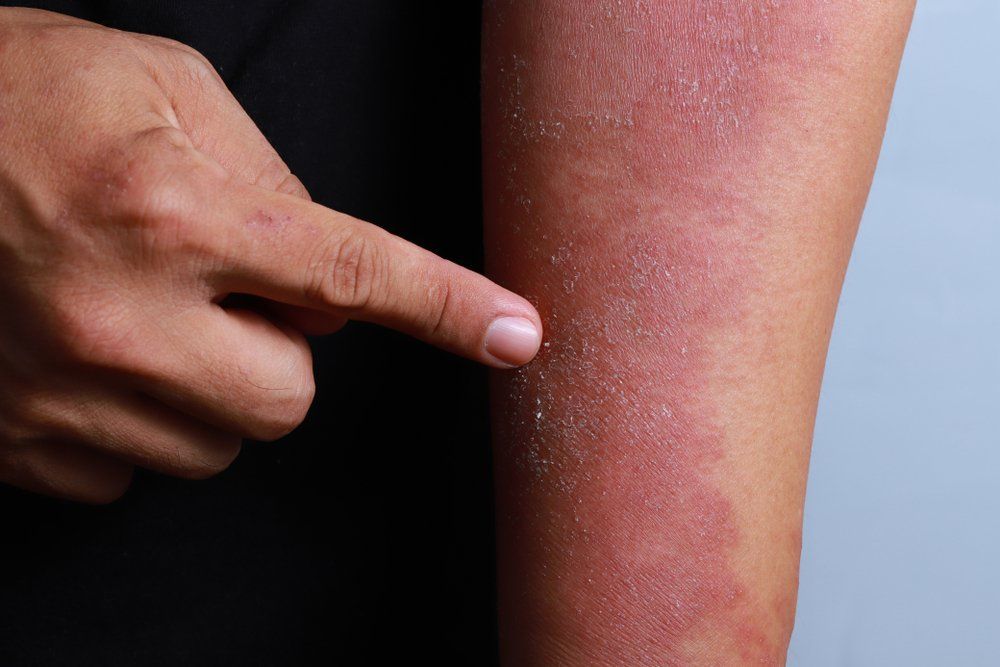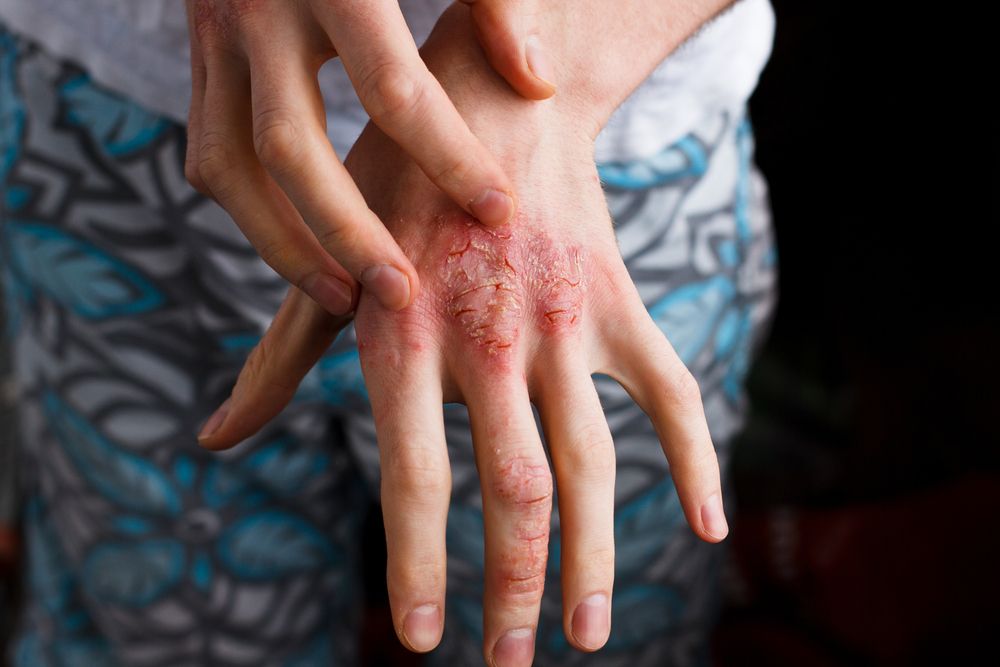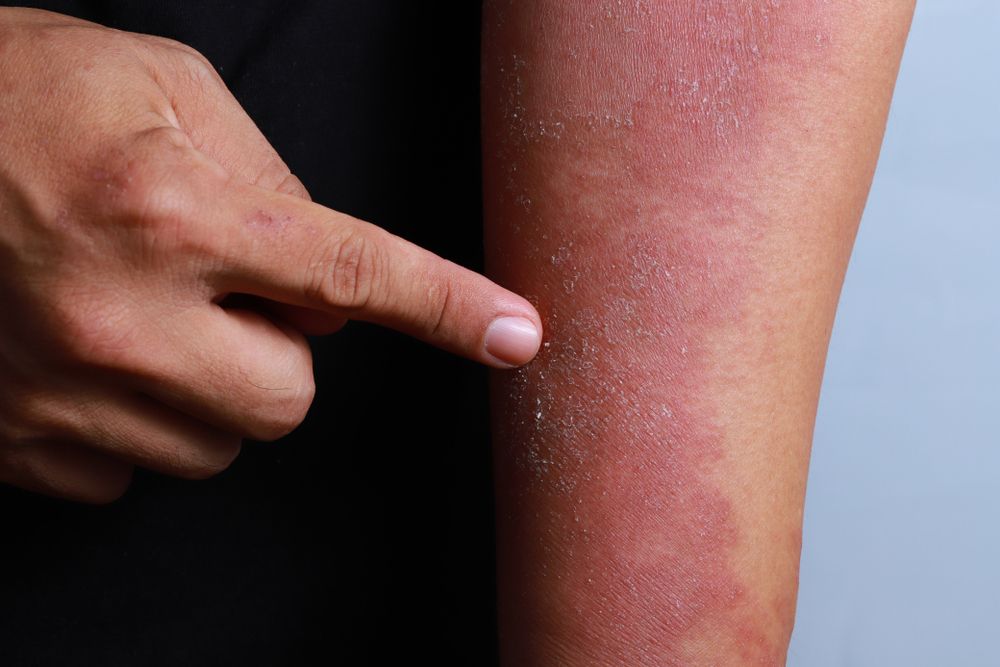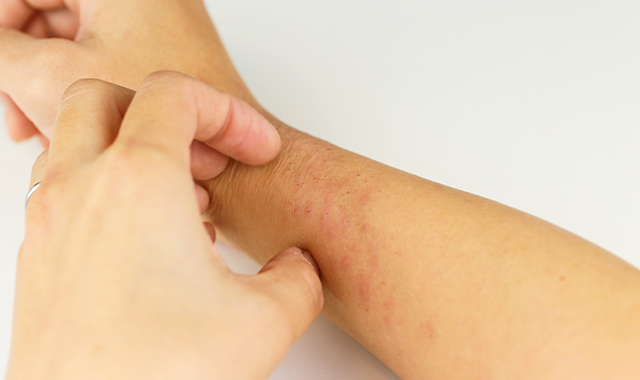- Case-Based Roundtable
- General Dermatology
- Eczema
- Chronic Hand Eczema
- Alopecia
- Aesthetics
- Vitiligo
- COVID-19
- Actinic Keratosis
- Precision Medicine and Biologics
- Rare Disease
- Wound Care
- Rosacea
- Psoriasis
- Psoriatic Arthritis
- Atopic Dermatitis
- Melasma
- NP and PA
- Skin Cancer
- Hidradenitis Suppurativa
- Drug Watch
- Pigmentary Disorders
- Acne
- Pediatric Dermatology
- Practice Management
- Prurigo Nodularis
- Buy-and-Bill
Article
Dupilumab-associated conjunctivitis
Author(s):
Dupilumab-associated conjunctivitis may warrant discontinuing therapy for atopic dermatitis, a study shows.
The biologic dupilumab for atopic dermatitis may cause severe enough conjunctivitis to necessitate ceasing therapy, shows a study in JAMA Dermatology.
The study, which was published online August 29, consisted of a case series of 12 patients who reported developing conjunctivitis from a cohort of 142 patients treated with dupilumab for atopic dermatitis.
“Dupilumab is an important medication for patients with moderate or severe eczema that is not controlled with topical therapies and represents the first FDA-approved systemic medicine for atopic dermatitis since prednisone,” says study author Peter Lio, M.D., of the Department of Dermatology at Feinberg School of Medicine at Northwestern University in Chicago. “Although dupilumab has relatively few side effects, in the clinical trials ocular issues such as conjunctivitis, keratitis, blepharitis, eye pruritus and dry eye were found to occur in more patients on the drug than in the placebo group.”
Dr. Lio tells Dermatology Times that eye disorders seem to impact patients who otherwise are doing very well on the medication. “We are eager to better understand why this is happening in some patients and how to avoid or prevent it,” he said. “We hope that our cases help add to the knowledge base for clinicians to better understand these eye concerns.”
In his clinic, Medical Dermatology Associates of Chicago, Dr. Lio has a large number of severe eczema patients, many of whom are now on dupilumab. “While the drug has been transformative for most and beneficial to almost all, approximately 10 percent of patients are having eye issues,” he said.
The study was conducted on patient data from Dr. Lio’s clinic from March 2017 to March 2018.
Of the 12 patients who self-reported conjunctivitis, 58 percent were male and the median age of patients was 30 years at the time the disease occurred.
Overall, 25 percent of patients (3 of 12) developed severe enough conjunctivitis that dupilumab treatment was discontinued. 75% of patients (9 of 12), including the three patients who discontinued treatment, had an Investigator Global Assessment (IGA) score of 4 (severe) before starting the drug.
“My decision to stop therapy was very much to the chagrin of these three patients,” Dr. Lio says. “The most striking and frankly, the most heartbreaking piece is that the conjunctivitis seemed to happen more in patients with the most severe disease who responded well to treatment. In other words, it would be far less upsetting if dupilumab did not help clear the skin problem and caused some eye issues. In that case, it would be easy to discontinue treatment and move on. Unfortunately, in our cohort, it seemed to be patients who needed the treatment most and did very well, thus making it very difficult to stop and underscoring the importance of better understanding this side effect.”
Dr. Lio encourages clinicians to continue to learn about the eye issues surrounding dupilumab. “We also need to keep sharing our experiences, so we can better understand, prevent, and treat these conditions,” he says.
Dr. Lio speculates that having patients preemptively use rewetting eye drops may help lower the risks. “I also think that rapid treatment by an ophthalmologist in some cases will allow patients to continue on the medication comfortably,” he says.
A recent study in the Journal of Allergy and Clinical Immunology showed that fluorometholone 0.1% eye drops or tacrolimus 0.03 eye ointment was particularly useful in reducing the incidence of conjunctivitis among patients injected with dupilumab for atopic dermatitis.
Dr. Lio has several patients now trying tacrolimus.
Two limitations of the study are that it is single center and all patients self-reported their eye problems. “It is possible that patients had eye problems but did not report them to me,” Dr. Lio said.
Dr. Lio is hopeful that dupilumab-associated conjunctivitis will be resolved. “This will greatly benefit those who had been waiting for something like dupilumab for many years and now are not able to use it,” he says.
Dr. Lio and his colleagues are currently discussing a follow-up study that would much more proactively track patients, along with an ophthalmologist, to better characterize conjunctivitis caused by dupilumab.
DISCLOSURES
Dr. Lio is an advisor and speaker for Sanofi Genzyme and Regeneron.
REFERENCES
Treister AD, Kraff-Cooper C, Lio PA. “Risk Factors for Dupilumab-Associated Conjunctivitis in Patients with Atopic Dermatitis,” JAMA Dermatology, 2018 Aug 29. DOI:10.1001/jamadermatol.2018.2690 [Epub ahead of print]
Wollenberg A, Ariens L, Thurau S, et al. “Conjunctivitis Occurring in Atopic Dermatitis Patients Treated with Dupilumab - Clinical Characteristics and Treatment,” Journal of Allergy and Clinical Immunology: In Practice, 2018 Sep - Oct;6(5):1778-1780.e1. DOI:10.1016/j.jaip.2018.01.034. [Epub 2018 Feb 9]






